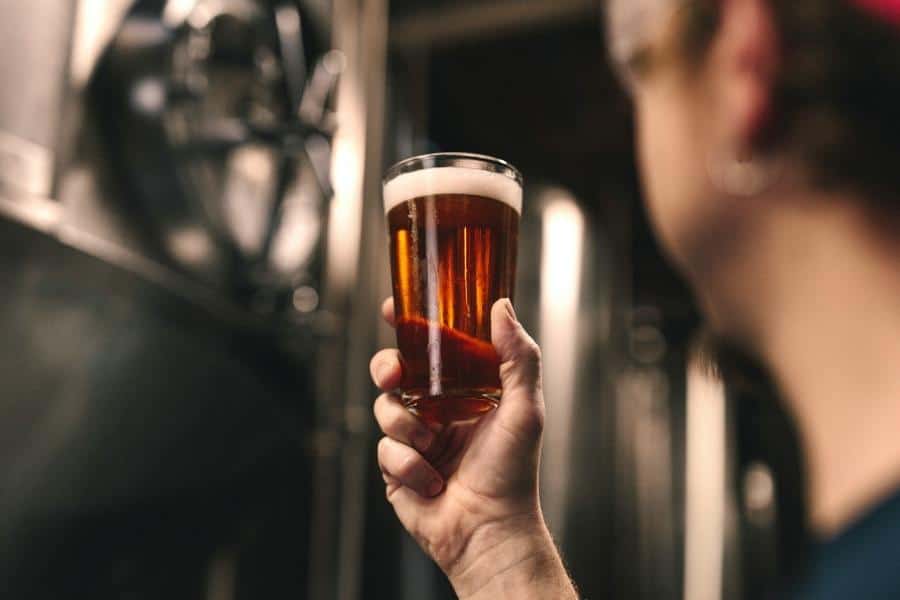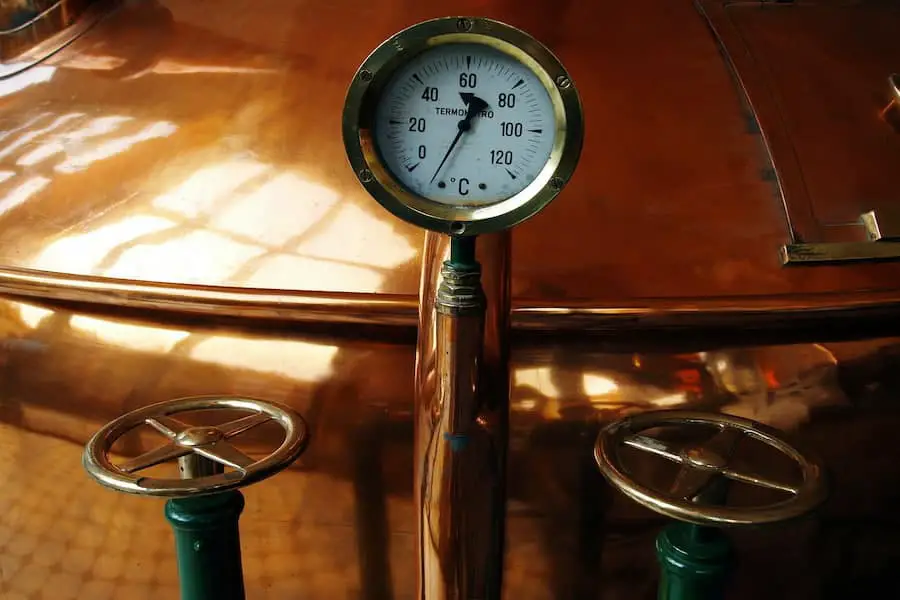If you buy something through a link in our posts, we may get a small share of the sale.
Fermentation is one of the critical steps in brewing beer. During fermentation, the yeast converts the sugars in the wort into alcohol and carbon dioxide. It is also during this process that many of the flavors and aromas in beer are produced. So, can you over-ferment beer?
Contents
Can You Over-Ferment Beer?
No, you cannot over-ferment beer. The fermentation process is self-limiting, meaning that the yeast will eventually run out of sugars to convert or will produce so much alcohol that it will kill itself off. The normal fermentation usually takes 2-3 weeks, during which the yeast will consume the sugars in the wort and produce alcohol and carbon dioxide.

At the end of fermentation, the yeast will settle to the bottom of the fermenter, and the beer will be clear. However, if you were to continue fermenting the beer, the yeast would eventually die off, and the beer would be flat.
Flat beer is not necessarily a bad thing. In fact, some styles of beer, such as lambic, are intentionally fermented until the yeast is all dead. This produces a very dry, tart beer that is quite different from a beer that has been fermented to completion. This is just an exceptional case, however, and in general, you should not over-ferment your beer.
Factors That Affect Fermentation
A few things may lead to a beer not fermenting fully or cause the yeast to produce off-flavors. The following are a few things that may affect your beer’s fermentation:
Using Too Much Yeast
This can lead to a “sticky” fermentation, where the yeast never really settles out, and the beer remains cloudy. You’ll also end up with more off-flavors as the yeast continues to break down sugars.
Ensure you have an optimal pitching rate, and you shouldn’t have any problems. The rule of thumb is to use one packet of yeast per 5 gallons of wort for ales and two packets per 5 gallons for lagers.
Pitching Temperature
Temperature plays an important role when it comes to fermentation. If it’s too cold, the yeast will go dormant and may never wake up. This can lead to a beer that never ferments or takes a very long time to do so.
If the temperature is too hot, on the other hand, the yeast will produce a lot of off-flavors. The ideal fermentation temperature for most ales is between 68-72 degrees Fahrenheit and for lagers, it’s between 45-55 degrees Fahrenheit.
Always have your thermometer to monitor both the primary and secondary fermentations. You don’t want to open the fermenter too often, which can introduce oxygen, leading to oxidation.
Sugar Content
Sugar is one of the things that yeast needs to ferment and plays a vital role in the process. The amount of sugar in your wort will determine how much alcohol is produced and how long fermentation takes.
If there isn’t enough sugar, the yeast won’t have anything to eat, and fermentation will either be very slow or may not happen. If there’s too much sugar, on the other hand, the yeast may produce more alcohol than you want.
Always take a gravity reading before pitching the yeast to ensure proper fermentation. This will give you an idea of the sugar content and will help you adjust if needed. It will also help you determine when fermentation is complete.

How to Tell if Fermentation Is Complete
Homebrewers should always be very keen when it comes to fermentation. This is because it’s very easy to have a beer that doesn’t taste right if fermentation isn’t done properly. The following are ways to tell if fermentation is complete:
- The beer will start to clear as the yeast settles out. This is due to the fact that the yeast will start to flocculate or clump together.
- The gravity will stop changing. This is the most reliable way to tell if fermentation is complete.
- The airlock will stop bubbling. This is not as reliable as taking a gravity reading; however, it’s also a good indicator.
- The foam on top of the beer will start to dissipate. This is because the yeast will no longer be producing carbon dioxide.
Frequently Asked Questions
What Happens if You Let Your Beer Ferment Too Long?
If you let your beer ferment too long, the yeast will eventually die off, and the beer will be flat. The beer may also be infected with bacteria, which will give it an off-flavor.
How Do You Know When Secondary Fermentation Is Complete?
You’ll know secondary fermentation is complete when the gravity stops changing and the beer starts to clear. The airlock may also stop bubbling.
What Happens if You Over-Carbonate Your Beer?
If you over-carbonate your beer, it will be very fizzy, and the flavor will be off. It’s best to avoid this by allowing the beer to condition in the bottle for the recommended amount of time.
Conclusion
Proper fermentation is key to making great beer. Pitch the yeast at the proper rate and maintain the correct fermentation temperature. This way, you will have a beer that is both tasty and enjoyable and also avoids any potential problems.

